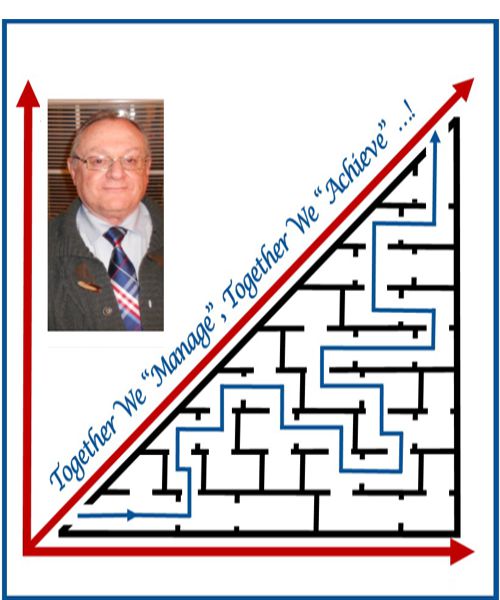Viewpoint
» On "Teaching"
» On "Learning"
» On "Knowledge"
» On "Goals"
» On "Time"
» On “Management”
» On “Reading”
» On "Committees"
» On "A Place to Visit"
» On "Human Resources"
» On "Progress & Development"
» On "History"
» On "Public Speaking"
» On "Organizing"
» On "Motivation"
» On "Teams"
» On "Communication"
» On "Management Coaching"
» On "Traveling"


On "Human Resources"
By Adel J. Helou
One of the most important components of a business is its employees. Without these employees it will be difficult to start, run, or maintain a business. It is important to have a cohesive team of employees in order to ensure the stability, growth, longevity, and success of a business. Therefore, it is imperative for a company to have a competent and effective Human Resources (HR) Department. Below are a few tasks and responsibilities pertaining to the Human Resources (HR) Department:
It is apparent from the list above that Human Resources (HR) Department is in contact with and involved in activities of most, if not all, other departments of a business establishment. Therefore, HR has to establish communication with all these departments. HR should also be able to interact with the various departments in the business. To demonstrate - in part - such interaction there are the following examples:
Advise and update upper management on personnel skills and needs.
Advise upper management on any new regulations regarding personnel and their benefits.
Advise upper management of needs to increase or decrease personnel.
Work with this department on employment contracts and conditions.
Work with this department in case of disputes between personnel and the administration.
Consult with this department on issues of personnel salary and benefits.
Coordinate with this department on matters of hiring and termination of service regarding personnel.
Coordinate with these departments on matters of number of personnel requirements to run the business effectively.
Work with these departments on the issue of salaries, promotions, and benefits of personnel.
Resolve conflicts between personnel and departments, when needed.
Coordinate with this department to ensure that the appropriate personnel receive the correct security passes.
Coordinate with the Security Department to ensure that all confidential documents are returned to the appropriate departments along with all security passes when any personnel services are terminated with the business at retirement, resignation, or for any other reason.
Moreover, in large businesses where there will be an Industrial Engineering Department and a Training Department, some of HR functions stated above may be assigned to these two departments. Nonetheless, there will always be communication, coordination, and interaction between these three departments.
The Industrial Engineering Department may prepare and run the operational audits. The results of these audits would be communicated to the HR Department for update and can assist in determining personnel skills and requirements to enhance business effectiveness and success.
On the other hand, the Training Department will be responsible for all aspects of training; from determining the various needs of the different departments, developing the materials required, choosing the trainers, running the training sessions, and evaluating the results. Such results would be transmitted to the HR Department to update participating personnel records and preparing participants’ documents for promotions and other benefits, as needed.
This article was written to demonstrate some of the roles and functions of an HR Department and to emphasize its importance for businesses to ensure success and continuity on the marketplace.
Adel J Helou: is a Business and Life Management Coach. He has more than 15 years of experience in production and operations management. The Author has international professional experience in the Middle East markets. He holds a B.Sc. degree in Chemistry and Physics and an M.Sc. in Chemical Engineering. Mr. Helou has pages on Facebook, LinkedIn, Twitter, and Instagram:
facebook.com/AdelJosephHelouManagementCoach/
linkedin.com/in/adeljosephheloumanagementcoach/
Instagram.com/adel.helou
twitter.com/helou_adel
Read about his Management Coaching and the articles he writes, by visiting the electronic magazine (E-Zine): optimanage.com.
The E-Zine has a fb page: facebook.com/optimanagedotcom/.
A.J. Helou can be contacted by e-mail: a.j.helou@optimanage.com (e-mail)
linkedin.com/in/adeljosephheloumanagementcoach/
Instagram.com/adel.helou
twitter.com/helou_adel
Read about his Management Coaching and the articles he writes, by visiting the electronic magazine (E-Zine): optimanage.com.
The E-Zine has a fb page: facebook.com/optimanagedotcom/.
A.J. Helou can be contacted by e-mail: a.j.helou@optimanage.com (e-mail)





